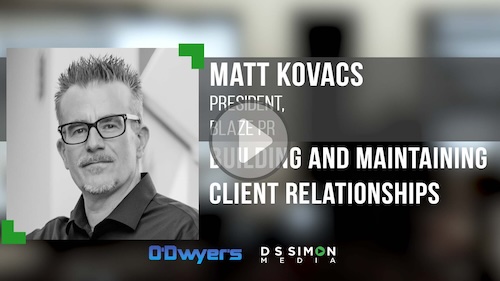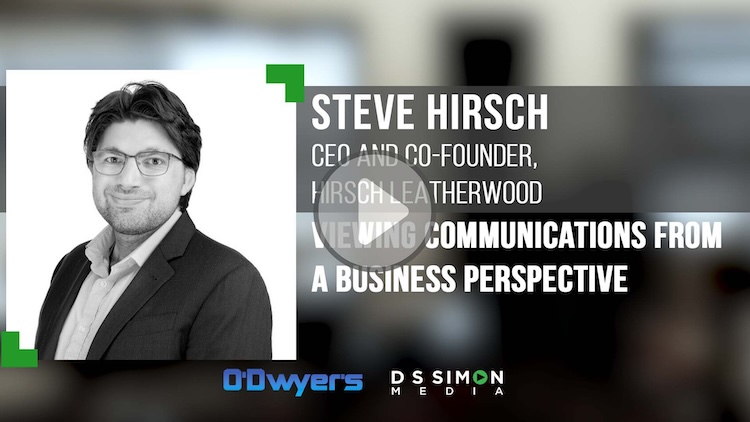 Fraser Seitel Fraser Seitel |
Somewhere between those two extremes lurks the real Hillary Clinton.
After two-and-a half decades in public life — as First Lady, Senator, Secretary of State and presidential candidate — and countless attempts by image consultants, marketing experts, public relations strategists and Hollywood pals to “make her over,” Clinton remains one of America’s most polarizing political figures.
According to recent polls, 55 percent of the American public has an “unfavorable” impression of her. And while that’s still not as bad as Donald Trump’s unfavorable numbers (70 percent), it’s still bad for someone seeking to be President.
So, the question that has dogged her for 25 years remains as she seeks the highest office in the land, namely: “How can Hillary Clinton become more likable?”
The latest proof that “Hillary likeability” still eludes Clinton was her performance at the Democratic Convention. The speakers immediately preceding her keynote address — her husband, President Obama, his wife, Vice President Biden, even Mayor Bloomberg — set her up perfectly to deliver the historic speech of a lifetime. And she botched it.
Most commentators — including the friendly ones — considered Hillary’s speech to be underwhelming, pedestrian in text and dispassionate in delivery. Certainly not the stuff of which “history” is made.
So what does Mrs. Clinton do over the next 100 days to convince her countrymen that she is not at all the ogre her enemies proclaim nor the cold fish that many less hostile but equally skeptical observers accuse her of being?
Here are three quick fixes for interviews, debates and speeches that might move the likability needle.
Stop trying so hard
Whether you’re Aaron Burr or Hillary Clinton, people just like you more if you look like you’re enjoying yourself. It indicates confidence.
Indeed, people close to Hillary Clinton — and not just the sniveling toadies like Lanny Davis — swear that in real life and small groups, she is downright warm, fun-loving and personable.
That rarely comes across in her interviews and hardly ever in her speeches, where she seems forever on edge. Even when she delivers a laugh line, as she did at the convention — Trump “spoke for 70-odd minutes — and I do mean odd” — it more often than not comes across as stilted, canned an inauthentic.
And so do the mountain of clichés that lard her speeches, vacuous phrases like … “We will work together so we all can rise together,” or “We will rise to the challenge, just as we always have,” or hackneyed quotes like “The only thing we have to fear is fear itself.”
Such hoary rhetorical sound bites may work for a more gifted orator like Barack Obama, but they sound hollow and forced coming out of the mouth of a mediocre speaker like Clinton.
Better would be for Hillary to relax, forgo the clichés and speak confidently to her policy and substance strength, without appearing to try too hard.
Think real people
In her travels, Hillary Clinton has met thousands of people with thousands of stories, many of them gripping tales of courage and fortitude.
Invariably, when she refers to these people in interviews and speeches, they fall flat.
Such was the case in Philadelphia, when Clinton referred to some of the brave people she had known, who had preceded her on stage at the convention.
“People like Ryan Moore and Lauren Manning … I first met Ryan as a seven-year-old. He was wearing a full body brace that must have weighed 40 pounds because I leaned over to lift him up. Children like Ryan kept me going when our plan for universal health care failed … Lauren Manning, who stood here with such grace and power, was gravely injured on 9/11. It was the thought of her, and Debbie St. John, and John Dolan and Joe Sweeney, and all the victims and survivors, that kept me working as hard as I could in the Senate on behalf of 9/11 families.”
Rather than taking time to recount these intimate meetings, provide texture of the special heroism of Ryan and Lauren and reveal the feelings she, personally, felt at the time, aka showing some emotion, Mrs. Clinton, instead, briefly alluded to their ailments, glossed over the particulars and leapt right to her own resolve to get things done; thus reinforcing the notion that Hillary Clinton is aloof, cold and most likely, calculating.
To combat such missed opportunities, she should be reminded daily by her advisers to take a moment to “think about” these people, themselves, before opening her mouth. If she really is as compassionate as her friends insist she is, then this momentary pause will do wonders to enhance the impression she leaves with listeners.
Stop hectoring
Suggestions that Hillary is too shrill and that she hectors and browbeats her listeners usually result in knee jerk charges of “sexism” and “double standard.” And it is true, of course, that when it comes to ranting, Donald Trump is the biggest bully ever to (dis)grace the American political stage.
But the fact remains that Mrs. Clinton’s propensity to badger is off-putting at best, self-defeating at worst. It gives her critics ammunition and her supporters agita.
For example, look at her acceptance speech and see how she chose to ram home applause lines like, Americans don’t say, “I alone can fix it;” we say, “We’ll fix it together!” and “Freedom and equality, justice and opportunity. We should be so proud that these words are associated with us!”
Then compare those lines with the equally-explosive phrase, “Mothers who lost children to violence and are building a movement to keep other kids safe. He’s forgetting every last one of us.”
While the former are delivered harshly in a shouting tone, the latter are delivered more softly, compassionately and, I would say, persuasively.
The point is that Hillary doesn’t need to holler to convey concern and commitment. And she shouldn’t.
Mrs. Clinton concluded her acceptance speech by saying, “America’s strength doesn’t come from lashing out. Strength relies on smarts, judgment and cool resolve.”
Were I her communications advisor, that’s the line I’d tack on the bulletin board and remind her of whenever she ventures out in public.
* * *
Fraser P. Seitel has been a communications consultant, author and teacher for 40 years. He may be reached directly at [email protected]. He is the author of the Prentice-Hall text The Practice of Public Relations, now in its 12th edition, and co-author of Rethinking Reputation and Idea Wise.










 Have a comment? Send it to
Have a comment? Send it to 
No comments have been submitted for this story yet.